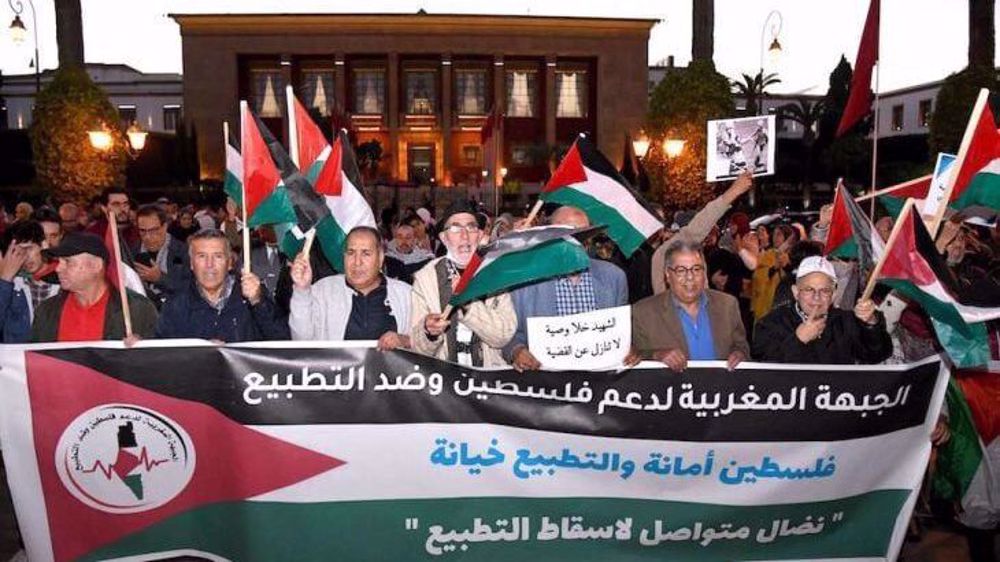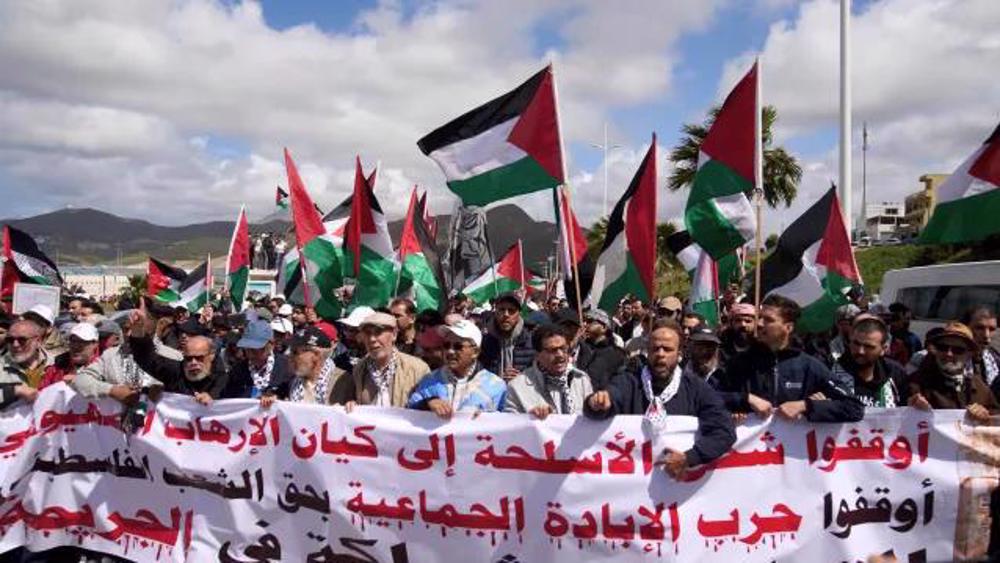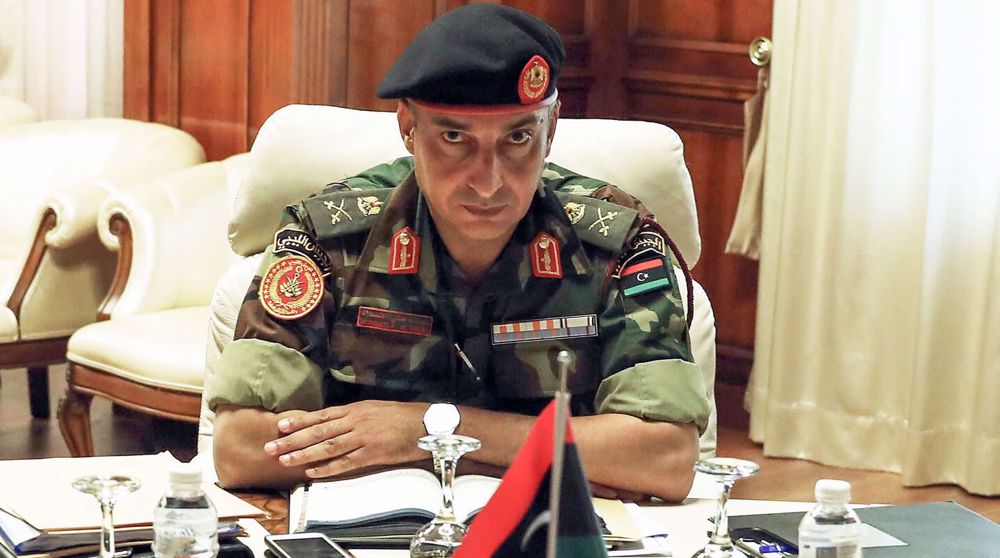Libya’s Haftar forces targeted by airstrike as they march for capital Tripoli
Forces of the so-called Libyan National Army (LNA), led by Libya’s strongman Khalifa Haftar, say they have been targeted by an airstrike south of Tripoli, as they are pushing forward to seize the capital reportedly with support from the United Arab Emirtes, Saudi Arabia, and Egypt.
The North African country has been divided between two rival governments, the House of Representatives, based in the eastern city of Tobruk, and the internationally-recognized government of Fayez al-Sarraj, or the Tripoli-based unity Government of National Accord (GNA). Haftar is presumably loyal to the one in the east.
Middle East Monitor quoted a senior Libyan general as saying that there are Emirati and Egyptian weapons being used by Haftar's fighters in the battle to capture the capital and oust the GNA, stressing that Saudi Arabia gave Haftar the green light for his attack and supplied him with money in order to take over the west Libya.
“Egypt and the UAE supplied Haftar with arms and heavy equipment... Haftar is also using militias from Chad and the Sudanese opposition," Libyan Brigadier General Mohammad Al-Qunidi, who is chief of the military intelligence loyal to Sarraaj, has said, noting, “The three Arab countries support Haftar’s militias in order to create a new Sisi in Libya,” referring to Egyptian President Abdel Fattah Al-Sisi.
“Haftar does not have money and arms enough to face Al-Bunyan Al-Marsous forces [the coalition formed to expel Daesh from the central city of Sirte in 2016] and the Libyan army together in the western area. His move came only after his latest visit to Saudi Arabia,” he told Al Khaleej Online on Friday.
According to the Guardian, Haftar met King Salman of Saudi Arabia on 27 March in Riyadh. However, King Salman did not meet with Sarraj at the Arab League meeting in Tunis two days later, a move that could be taken as a signal of support for Haftar at a time when it was known he was considering an attack on Tripoli.
The LNA media office said in a statement on Saturday that a military plane, reportedly taken off from the city of Misrata, conducted the airstrike “in the al-Aziziya region,” some 50 kilometers south of Tripoli. Forces in Misrata are mostly loyal to the GNA.
“We strongly condemn the air raid,” said the statement.

Meanwhile, forces loyal to the GNA arrived in Tajura, a coastal suburb of Tripoli, from their base in Misrata.
On Thursday, the eastern forces fully seized Gharyan town, located about 100 kilometers south of Tripoli, and on Friday they captured the former Tripoli International Airport.
Earlier Friday, forces allied to the GNA had pushed back Haftar's forces from a key checkpoint less than 30 kilometers from Tripoli.
The United Nations has already voiced its deep concern regarding the outcome of the soaring conflicts for the African nation, strongly urging Haftar to halt his forces’ advancement toward the capital.
UN insists to hold national conference
Additionally on Saturday, the UN said that it was determined to hold Libya’s national conference on possible elections on time despite the current surge of fighting.
The world body aims to hold a conference in the southwestern town of Ghadames on April 14-16 to weigh elections as a way out of Libya’s factional anarchy.
“We know that holding the conference in this difficult time of escalation and fighting is a difficult matter. But we are determined to hold it on time unless compelling circumstances force us not to,” said Ghassan Salame, a senior UN envoy, in a press conference in Tripoli.
Furthermore, the G7 foreign ministers on Saturday warned Haftar to desist from his thrust on the capital, threatening the GNA there, or face possible international action.
Libya has been the scene of increasing violence since 2011, when former dictator Muammar Gaddafi was toppled from power after an uprising and a NATO military intervention.
His ouster created a huge power vacuum, leading to chaos and the emergence of numerous militant outfits, including the Takfiri Daesh terrorist group.
Iran’s top security official, Russian president discuss economic cooperation, regional issues
Leader’s advisor warns of ‘deep’ retaliatory strikes into occupied territories
US Department of Justice releases millions of Epstein files, then pulls pages citing ‘rape’ by Trump
VIDEO | EU blacklists anti-terror organization
VIDEO | 44th Fajr Theater Festival underway in Tehran
VIDEO | Press TV's news headlines
VIDEO | Oil workers' march in support of reform of Venezuela's main oil law
VIDEO | Malaysians hold rally in front of Iranian embassy to condemn US, Israel threats












 This makes it easy to access the Press TV website
This makes it easy to access the Press TV website